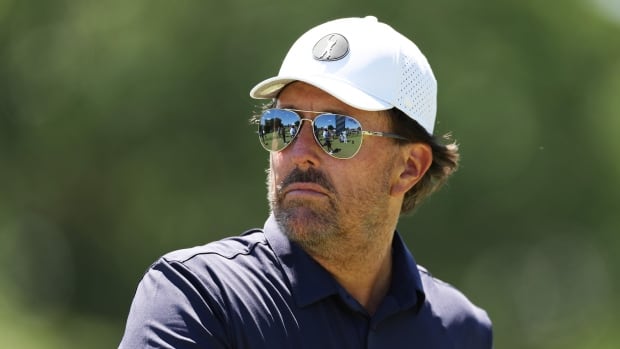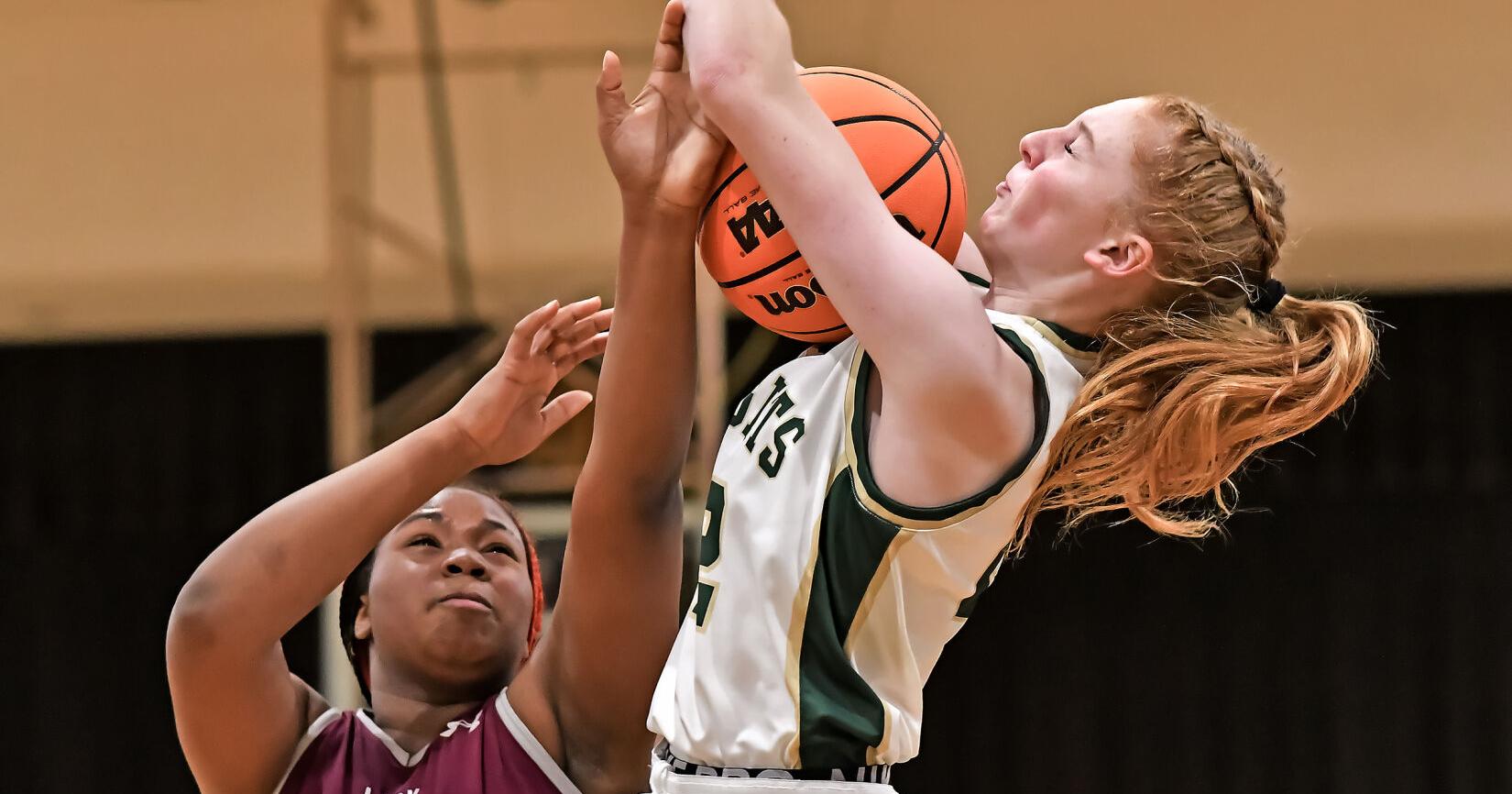
This is an excerpt from The Buzzer, which is CBC Sports’ daily email newsletter. Stay up to speed on what’s happening in sports by subscribing here.
The U.S. Open, beginning Thursday morning at The Country Club in Brookline, Mass., is the third men’s major of the year and the first since the controversial LIV Golf Invitational Series officially launched as a deep-pocketed challenger to the PGA Tour.
Reviews of the Saudi-backed league’s inaugural event last weekend in London were not good. Despite being headlined by big-name PGA Tour defectors Phil Mickelson and Dustin Johnson, the 48-man field was diluted by a lot of journeymen, and 2011 Masters champion Charl Schwartzel’s one-shot victory failed to move the needle. The much-hyped team competition didn’t really work either. More troubling for the fledgling tour, most of the media coverage was focused not on the course but on the press tent, where players gave awkward, canned answers when grilled about the moral implications of accepting huge piles of cash from the problematic Kingdom of Saudi Arabia.
Having said all that, it’s pretty clear that LIV Golf is not going away. The Saudis’ so-called Public Investment Fund contains assets worth an estimated $600 billion US, and they’re said to be prepared to spend a couple billion of that over the next couple of years on their golf startup. The key point to remember here, as expressed by ESPN golf writer Kevin Van Valkenburg, is that LIV Golf is less an independent sports league than a public- and investor-relations tool for the Saudi sovereign wealth fund. With the goal of diversifying the unimaginable fortune the kingdom has earned from selling oil, the fund has purchased a large slice of an American company that makes luxury electric cars and also owns stakes in Uber, the video-game maker Electronic Arts and the concert promoter Live Nation, to name a few examples.
Meanwhile, in order to appear more palatable to the global community, the authoritarian kingdom has attempted to launder its soiled human-rights reputation by hosting internationally popular sporting events like F1 races, boxing and pro wrestling cards and, yes, golf tournaments — a practice known as “sportswashing.” The goal of these events isn’t to make money. It’s to make Saudi Arabia seem friendlier to people who might consider doing business with them.
This willingness to go deep into the red makes LIV Golf especially dangerous to the PGA Tour. So does the fact that, while two billion dollars is a drop in the bucket to Crown Prince Mohammed bin Salman and the rest of the Saudi royal family, for golfers it represents a shot at generational wealth. Mickelson and Johnson signed on for a reported $200 million and $125 million, respectively, and Schwartzel’s $4-million prize for winning the inaugural tournament in London was bigger than any cheque ever cut by an event in the PGA Tour rotation — majors included. Even the last-place finisher, someone named Andy Ogletree, walked away with a cool $120K.
Meanwhile, many of those at last week’s PGA Tour event, the Canadian Open in Toronto, spoke grandiosely about remaining loyal to the established tour and rejecting the Saudi money to continue competing against the best in the world. Those sentiments seem to be resonating right now, but everyone knows that, in pro sports, cash is king. Surely, more players will be tempted by the absurd amounts of money LIV Golf is offering and jump ship. At some point, the PGA Tour is going to have to offer more than just an appeal to their better angels. That’s why, whether the rebel tour survives past the startup stage or not, it’s becoming clear that it will reshape the future of men’s golf in some way.
Back to the U.S. Open. The 127-year-old tournament remains open to players affiliated with any tour. That sets the stage for what should be a riveting showdown between stars from the PGA Tour and LIV Golf, among whom there’s considerable bad blood. Here are three guys to watch on each side:
Phil Mickelson: In some ways, it’s ironic that Lefty became the face of LIV Golf. His involvement with the Saudi-backed league initially seemed motivated mostly by a desire to leverage more money from the PGA Tour. Mickelson indicated as much when he made his now-infamous comments about the Saudis being “scary m—–f—–s” who “killed [Washington Post journalist Jamal] Khashoggi and have a horrible record on human rights” and “execute people… for being gay,” but that it was worth it to deal with them because “this is a once-in-a-lifetime opportunity to reshape how the PGA Tour operates.” The backlash from those words sent Mickelson into hiding for months before he resurfaced last week at the LIV Golf opener. At Brookline, the 51-year-old six-time major winner will try to fill the only big hole in his resumé: he’s never won the U.S. Open, finishing as the runner-up an agonizing six times. Read more about Mickelson’s situation here.
Dustin Johnson: Wayne Gretzky’s son-in-law won the 2016 U.S. Open at Oakmont for his first major title, and has since added a Masters victory in 2020. After bailing on the Canadian Open at the 11th hour, he finished eighth at the LIV Golf opener to earn $625K.
Bryson DeChambeau: The beefy 2020 U.S. Open champ has fallen on hard times since that breakthrough year. He failed to crack the top 25 in any 2021 major, and he hasn’t made a cut since January. DeChambeau’s massive swings off the tee and intense training methods have been blamed for his injury woes over the last couple of years, but the broken hand that kept him out of last month’s PGA Championship was suffered while playing table tennis at a golf tournament in — wait for it — Saudi Arabia. DeChambeau and fellow American Patrick Reed joined LIV Golf too late to play in the opener, but are expected to make their debuts at the second stop, in Portland later this month.
Rory McIlroy: The Northern Irishman has been the most vocal player critic of LIV Golf, and he made a cheeky comment about the new league on Sunday after winning his second straight Canadian Open title. McIlroy noted that this gave him 21 career PGA Tour wins, which is “one more than someone else” — a reference to LIV Golf CEO Greg Norman’s 20 victories. Fresh off firing a final-round 62 at St. George’s in Toronto, McIlroy is the betting favourite to win the U.S. Open for the second time and capture his fifth major.
Jon Rahm: The defending U.S. Open champion, who was ranked No. 1 in the world until earlier this year, pledged his loyalty to the PGA Tour yesterday while taking a shot at LIV Golf. “I’ve never really played the game of golf for monetary reasons,” Rahm said. “I play for the love of the game, and I want to play against the best in the world. The 27-year-old Spaniard is currently ranked No. 2, behind Masters champion Scottie Scheffler. The No. 2 betting favourite, though, is PGA Championship winner Justin Thomas.
Corey Conners: The best Canadian on the PGA Tour is coming off a sixth-place finish at the Canadian Open. Ranked 30th in the world, the Listowel, Ont., native is on a run of three straight top-10 finishes at the Masters but has struggled at the U.S. Open, missing the cut in all three of his starts.








